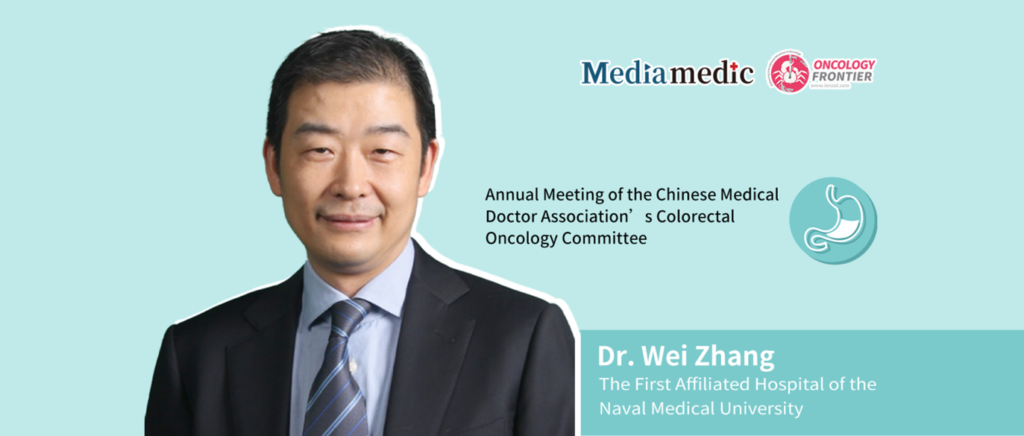
At the 9th Annual Meeting of the Chinese Medical Doctor Association’s Colorectal Oncology Committee, Dr. Wei Zhang from The First Affiliated Hospital of the Naval Medical University reviewed the 20-year progress in the treatment of low rectal cancer in China and outlined future directions in the field. His presentation highlighted major advancements in organ-preserving surgery, minimally invasive techniques, neoadjuvant therapy, and immunotherapy, showcasing how these innovations have transformed the clinical landscape for low rectal cancer treatment.Pushing the Limits: Advancing the Standard of Organ-Preserving Surgery
China has one of the highest incidences of rectal cancer globally, with 517,000 new cases annually, making it the second most common cancer in the country. Among these cases, rectal cancer accounts for 57.6%, significantly higher than in Western countries, with low rectal cancer comprising approximately 50% of cases. The complexity of treating low rectal cancer has long posed challenges, particularly in achieving a balance between oncologic control and sphincter preservation, which has been a critical concern for both surgeons and patients.
Twenty years ago, organ-preserving surgery for low rectal cancer faced multiple obstacles, including insufficient preoperative assessment, limited adoption of neoadjuvant therapy, suboptimal surgical quality, high local recurrence rates, low sphincter preservation rates, and the lack of validated laparoscopic techniques. Additionally, postoperative adjuvant therapy options were limited, reducing overall treatment efficacy.
With advancements in surgical techniques and oncologic strategies, rectal cancer surgery has evolved to achieve both oncologic radicality and functional preservation. Several milestones have been reached, including the establishment of total mesorectal excision (TME) as the gold standard, the widespread adoption of laparoscopic surgery, and significant improvements in sphincter preservation rates and functional outcomes. Advances in preoperative staging and routine neoadjuvant chemoradiotherapy have also contributed to improved patient selection and long-term outcomes. Moreover, multidisciplinary treatment (MDT) has become the cornerstone of rectal cancer management, with expanded chemotherapy options, the integration of precision medicine, and the emergence of immunotherapy, leading to significant clinical progress.
A major milestone occurred in 2000, when Changhai Hospital led the first national TME training program, marking the beginning of the TME era in China. Since then, various innovative sphincter-preserving techniques have emerged, including local transanal excision, intersphincteric resection (ISR), and conformal sphincter-preserving operations (CSPO). These advancements have greatly improved surgical safety and effectiveness, shifting the focus from tumor eradication alone to a balance between oncologic cure and functional preservation.
Integrating Innovation: The Synergy Between Minimally Invasive and Complex Surgical Techniques
In recent years, minimally invasive surgery (MIS) has played an increasingly pivotal role in the treatment of low rectal cancer. The introduction of laparoscopic and robotic-assisted surgery has enhanced surgical precision and reduced postoperative recovery time.
A multicenter, randomized controlled trial (LASRE), conducted by Chi Pan’s team at Fujian Union Hospital, compared laparoscopic versus open surgery for low rectal cancer. The study demonstrated that while both techniques provided equivalent oncologic safety, laparoscopic surgery resulted in a higher sphincter preservation rate (71.7% vs. 65%) and faster postoperative recovery. There were no significant differences in three-year disease-free survival (DFS), three-year local recurrence rates, or five-year overall survival (OS).
Another landmark trial, the REAL study, led by Jianmin Xu’s team at Zhongshan Hospital, Fudan University, confirmed that robot-assisted surgery provides more precise dissection, minimizes trauma, and accelerates recovery. Similarly, a randomized controlled trial (TaLaR), conducted by Liang Kang’s team at the Sixth Affiliated Hospital of Sun Yat-sen University, compared transanal TME (taTME) with laparoscopic TME, showing comparable short-term outcomes and equivalent long-term prognosis.
Further research by Hongbo Wei’s team at the Third Affiliated Hospital of Sun Yat-sen University evaluated the impact of preserving or resecting Denonvilliers’ fascia (DVF) on postoperative urinary and sexual function in TME surgery. The study found that patients in the DVF-preservation group had significantly lower rates of urinary and sexual dysfunction, particularly among men aged 50–59. Notably, there were no significant differences between the two groups in terms of three-year DFS, OS, or local recurrence rates, supporting the inclusion of functional preservation strategies in rectal cancer surgery.
Beyond minimally invasive techniques, advancements in surgical instrumentation and conceptual shifts have encouraged surgeons to push traditional boundaries. The successful integration of multivisceral resection and vascular reconstruction has enabled the radical resection of previously inoperable locally advanced tumors, offering a curative opportunity for select patients.
Breakthroughs in Neoadjuvant Therapy and Immunotherapy for Low Rectal Cancer
Advancing the Role of Neoadjuvant Therapy
Neoadjuvant therapy has become increasingly central to the management of low rectal cancer, with China leading innovative approaches in patient stratification and radiation-free treatment strategies.
A multicenter, open-label, randomized controlled trial conducted by Professor Kefeng Ding’s team at the Second Affiliated Hospital of Zhejiang University investigated direct surgery versus neoadjuvant therapy for MRI-assessed mesorectal fascia-negative (MRF-) locally advanced rectal cancer (LARC). The study found that patients undergoing direct surgery had a higher local recurrence rate (4.29% vs. 0%) and shorter three-year disease-free survival (DFS) (81.8% vs. 85.4%). Based on these results, direct surgery is not recommended for MRF- LARC patients, reinforcing the importance of neoadjuvant therapy.
The FOWARC study, led by Professors Jianping Wang and Yanhong Deng at the Sixth Affiliated Hospital of Sun Yat-sen University, demonstrated that neoadjuvant chemotherapy alone (FOLFOX) achieved a tumor downstaging rate (35.5%) comparable to the traditional 5-FU-based chemoradiotherapy regimen (37.1%), with no significant difference in long-term survival outcomes. Additionally, patients receiving chemotherapy alone experienced fewer toxic side effects and postoperative complications, supporting a radiation-free approach for select patients. These findings contributed to the inclusion of neoadjuvant chemotherapy as a standard option in clinical guidelines.
Similarly, the CONVERT trial, led by Professor Peirong Ding’s team at Sun Yat-sen University Cancer Center, compared CAPOX neoadjuvant chemotherapy with long-course chemoradiotherapy (CRT) in MRF-negative LARC patients. The study found comparable tumor downstaging rates (40.8% vs. 45.6%) but a significantly lower rate of prophylactic stoma creation in the chemotherapy-only group (52.2% vs. 63.6%), further validating a non-radiation approach for selected patients.
Short-course radiotherapy (SCRT) combined with chemotherapy has also gained attention. The STELLAR study, led by Professor Yexiong Li at the Cancer Hospital of the Chinese Academy of Medical Sciences, demonstrated that SCRT plus chemotherapy achieved DFS rates comparable to long-course chemoradiotherapy, with lower toxicity, suggesting that SCRT-based regimens could serve as an alternative to conventional long-course CRT.
The Role of Immunotherapy in Low Rectal Cancer
Immunotherapy has made remarkable progress in the treatment of low rectal cancer, particularly for mismatch repair-deficient (dMMR) tumors.
A study conducted by Professors Ruihua Xu and Gong Chen at Sun Yat-sen University Cancer Center found that 50% of patients with dMMR LARC achieved pathological complete response (pCR) and 80% achieved total complete response (CR) following treatment with the PD-1 inhibitor sintilimab, demonstrating significant clinical benefits from single-agent PD-1 blockade in this population.
Another multicenter retrospective analysis led by Professor Peirong Ding’s team at Sun Yat-sen University Cancer Center assessed the long-term efficacy of neoadjuvant immunotherapy for dMMR/MSI-H LARC. The study found that patients who achieved clinical complete response (cCR) had a 100% three-year overall survival (OS) and DFS, reinforcing the long-term benefit of PD-1 blockade in dMMR rectal cancer.
For mismatch repair-proficient (pMMR) patients, immunotherapy sensitization strategies are being actively explored. Professors Tao Zhang and Kaixiong Tao at Wuhan Union Hospital found that short-course radiotherapy combined with PD-1 inhibitors and chemotherapy significantly increased the pCR rate (39.8% vs. 15.3%) with favorable safety profiles, suggesting a potential role for immunotherapy in pMMR rectal cancer.
The CHOICE-1 study, led by Dr. Wei Zhang at Changhai Hospital, was a single-center, prospective, phase II trial that investigated long-course chemotherapy (CAPOX) plus sintilimab in T1-3N0-1M0 pMMR low rectal cancer patients. The study reported a cCR rate of 43.4%, a rectal preservation rate of 63.4%, and a sphincter preservation rate of 95.5%, indicating the potential for immunotherapy-enhanced organ preservation strategies.
Similarly, the TORCH trial, a multicenter, prospective, randomized phase II study led by Professor Zhen Zhang at Fudan University Cancer Hospital, evaluated short-course radiotherapy combined with total neoadjuvant immunotherapy (iTNT) using CAPOX plus toripalimab. The study showed a cCR rate of 43.5% in the short-course plus iTNT group versus 35.6% in the induction immunochemotherapy plus short-course radiotherapy group, with lower toxicity in the short-course plus iTNT arm, further supporting the feasibility of immunotherapy integration in rectal cancer treatment.
Looking Ahead: The Future of Personalized and Precision Medicine in Rectal Cancer
The future of low rectal cancer treatment will be increasingly driven by individualized and precision medicine approaches. Artificial intelligence (AI) will play a key role in early detection, surgical planning, and postoperative management, providing real-time clinical decision support for physicians.
The continuous advancement of robotic surgery and minimally invasive techniques will further refine sphincter-preserving procedures, improving both oncologic outcomes and postoperative function. Precision medicine and tailored treatment strategies will become the mainstay of rectal cancer management, integrating genomic profiling and targeted therapies to optimize patient-specific therapeutic approaches.
As patient-centered care gains greater emphasis, quality-of-life optimization and functional preservation will be prioritized. Beyond oncologic control, maintaining organ function and enhancing postoperative quality of life will be essential components of treatment planning.
Conclusion: A Bright Future for Low Rectal Cancer Treatment in China
Over the past two decades, China has made significant strides in the treatment of low rectal cancer, achieving remarkable progress in sphincter-preserving surgery, neoadjuvant strategies, and immunotherapy applications. These advances have greatly improved survival rates and quality of life for patients.
As research continues to expand the boundaries of precision oncology and minimally invasive surgery, the future of low rectal cancer treatment in China is full of promise. Physicians and researchers remain committed to pushing the frontiers of medical innovation, ensuring that patients receive the most effective and personalized care possible.
Expert Profile: Dr. Wei Zhang
Affiliation: The First Affiliated Hospital of the Naval Medical University (Changhai Hospital) Position: Chief of Colorectal Surgery, Professor, PhD Advisor
Professor Zhang holds numerous leadership positions in national and military medical organizations, including serving as a leading figure in China’s clinical specialty development, a consulting expert for the Central Military Commission Health Committee, and a recipient of the “National Distinguished Physician – Excellence in Medical Leadership” award. He is also a vice chair of the Chinese Medical Doctor Association’s Colorectal Oncology Committee, a vice president of the Chinese Medical Doctor Association’s Coloproctology Division, and editorial board member for multiple prestigious medical journals.


